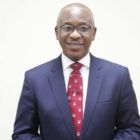The Director-General, Bureau of Public Enterprises (BPE), Alex Okoh, on Thursday said that about N550 billion was realised from the privatisation of some of federal government’s 142 assets that had been privatised or commercialised.
Okoh made the disclosure in Abuja at a news conference on the organisation’s work plan and other initiatives for 2018.
He added that Nigeria made 7.8 billion dollars as Foreign Direct Investments (FDIs) from privatisation and commercialisation of 53 enterprises in the past 18 years.
The BPE boss, however, said that not all the reforms translated into a sale or cash.
“For the assets that are just commercialised and not sold, we will not see a proceed figure as some were commercialised while some were concessioned,’’ he said.
According to him, about 37 per cent of the enterprises that have been privatised or commercialised are not doing extremely well.
This, he noted was due to macro-economic issues, fiscal problems, and other issues.
He said discordant policies fundamentally affect industries, adding that access to capital, especially debt to drive the working operations on a daily basis are priced out of the profitability framework of the enterprises.
“We are not abandoning these enterprises but looking at how to address the issues that are affecting effective performance of the enterprises.
“I believe that if those enterprises were not privatised, they would have still been in the same problem, so it is not the privatisation that caused the non-performance but the business environment both from the macro perspective and the micro issues,’’ he said.
On the challenges in the power sector privatisation, Mr. Okoh said there was an on-going review of the gaps in the sector.
He said that the review was essentially aimed at addressing the fundamental flaws, which includes issues around enumeration of the customers.
The director-general said enumeration and metering should address the issue of pricing and revenues in the system.
According to him, the Power Sector Recovery Plan (PSRP) provides some kind of counterpart funding of one billion dollars from the World Bank to help in the provision of some of the needed assets.
The director-general said that the organisation was not in any running battle with Distribution Companies (DISCOs), but in a collaborative effort because the BPE is a member of its board.
“We want to help address the challenges in the downstream sector of the electricity industry.
“We do not take an antagonistic position against them because we believe that these are key business challenges that they are facing,’’ he added.
Mr. Okoh recalled that about N330 billion was paid as compensation of the entitlement of about 49,000 workers when the sector was privatised.
He stressed that privatisation was not a callous way of depriving workers of their entitlements because those factors were considered before the institution was privatised.
On privatisation of oil refineries, Mr. Okoh said the BPE believes in rehabilitation rather than selling them off to get scrap value now.
With NAN report




